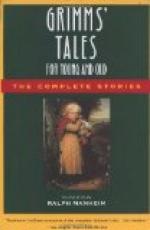But how fared the married pair?
At first they lived happily enough; but, when the enthusiasm of love was over, other excitements were sought. They removed to London. Herbert became wildly dissipated, and his wife habitually expensive. The estate was soon impoverished, trees cut down, and the whole steeped in mortgages. Crime succeeded. By a legal juggle, Catherine was deprived of her reversionary rights; and when every penny was gone, the wretched Hardman ended his days in a debtor’s prison. His wife followed him, leaving no child to inherit the estates.
Catherine had, during all this while, lived with her father till his decease, which took place just before that of Herbert. She then removed to Coote-down, which had come into her possession, failing nearer heirs—her father having been a cousin two degrees removed from the late Mr Hardman, senior. There she had lived on for years, without any attempt to improve the ruined property, and in the seclusion in which I saw her at my visit.
Such is the history of the ‘Home-wreck,’ whose effects I witnessed in my visit to Coote-down. Since then, however, things have materially changed. A very short time ago, I received notice that the heroine of the above events had sunk into the grave, leaving most of her property to my cousin and fascinating cicerone, who is now happily married. By this time the estate has resumed its former fertility, and the house some of its past grandeur.
LOVE AT FIRST SIGHT.
A TALE OF THE SIOUX INDIANS.
BY PERCY B. ST JOHN.
In the very centre of one of the thickest and heaviest woods of the American continent, where now stands a busy manufacturing town, there was, some forty years ago, an Indian camp occupied by a small band of the wild and warlike Sioux. They were not more than fifty in number, having visited the spot merely for the purpose of hunting, and laying in a store of provisions for the winter. It chanced, however, that, coming unexpectedly upon certain Assineboins, who also were outlying in the woods, following the exciting duty of the chase, a quarrel ensued, ending in a bloody contest, in which the Sioux were victorious. With rude tents pitched, without order or method, in an open glade of the forest, with horses tethered around, and little dusky imps fighting with the lean dogs that lay lolling their tongues lazily about, there was yet a picturesque air about the place and its extraneous features, which would have captivated the eye of one in search of nature’s sunshiny spots. Deeply embosomed within the autumnal tinted wood, a purling spring that burst from the green slope of a little mound was the feature which had attracted the Indians to the locality. Rank grass had once covered the whole surface of this forest meadow, but this the cattle had closely cropped, leaving a sward that would have rivalled any European lawn in its velvety beauty, and that, falling away before the eye, became inexpressibly soft as it sunk away in the distance.




